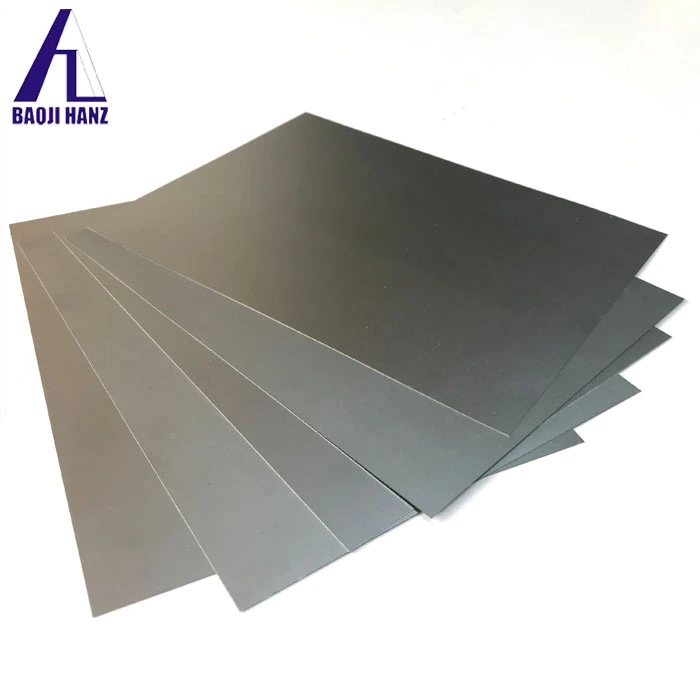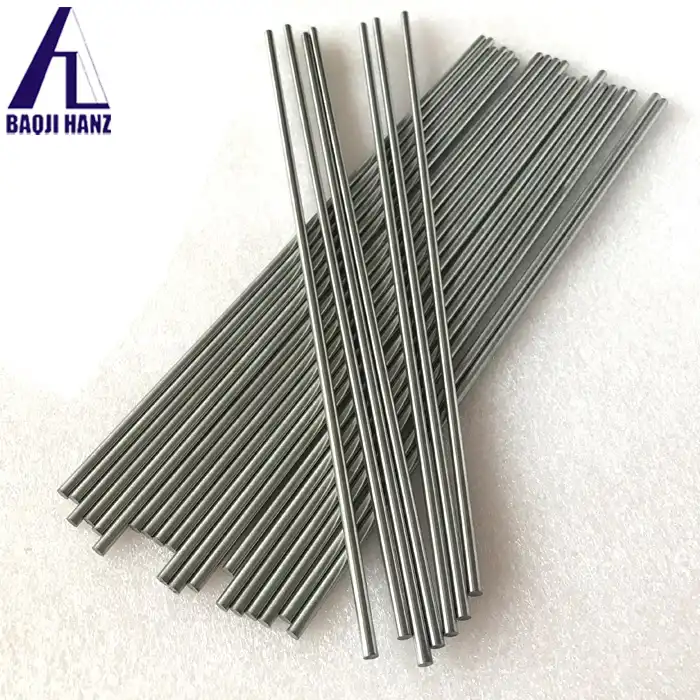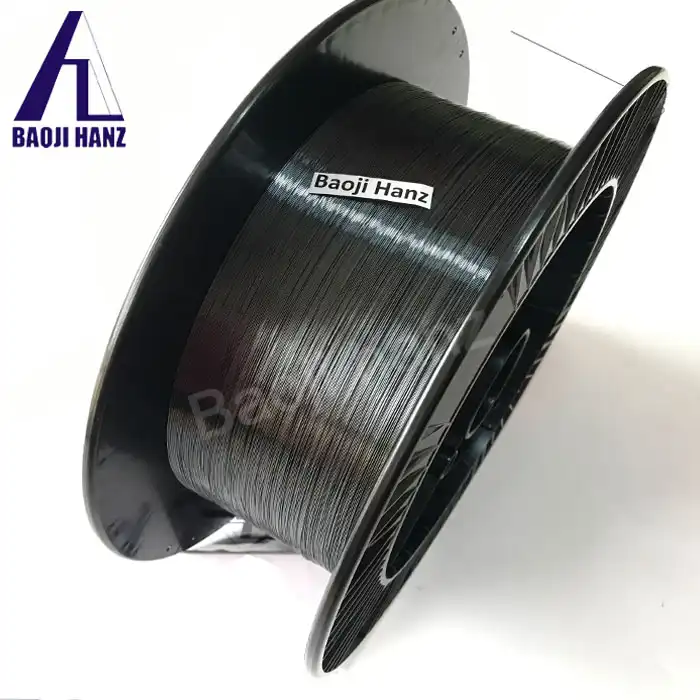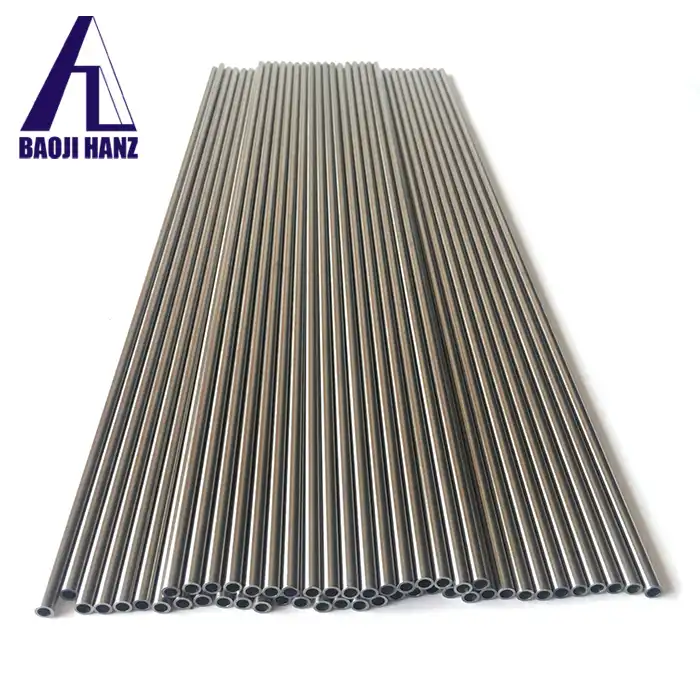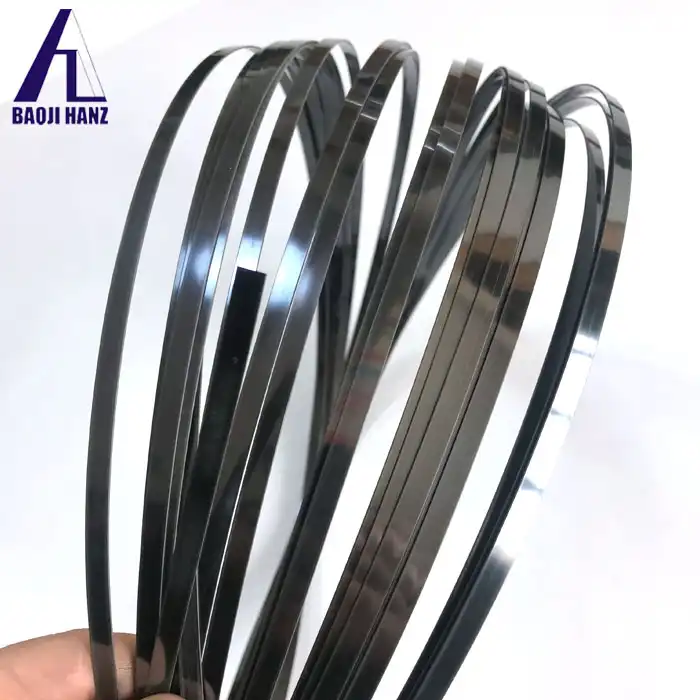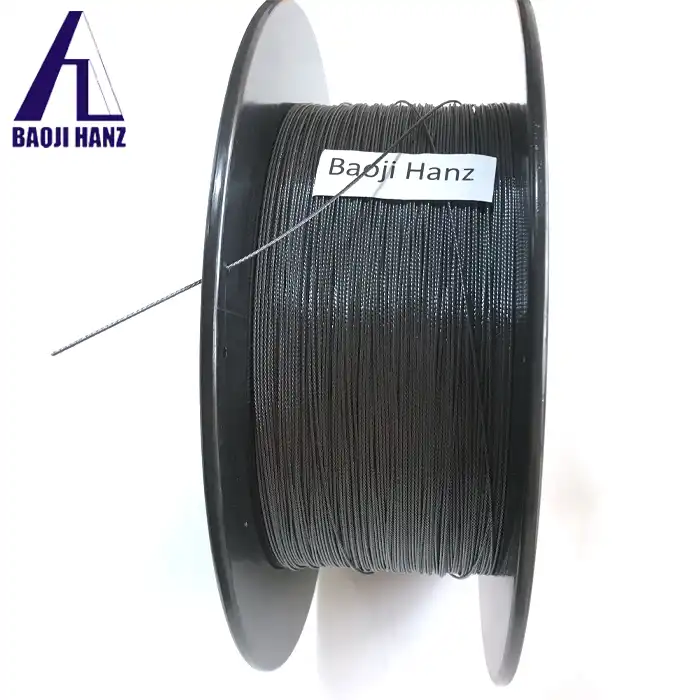How do NiTi-01 Memory Nitinol gaskets work?
2025-05-13 15:21:51
NiTi-01 Memory Nitinol gaskets represent a revolutionary advancement in sealing technology, utilizing the unique properties of nickel-titanium shape memory alloys. These specialized gaskets operate through a sophisticated mechanism based on the shape memory effect and superelastic properties inherent to nitinol materials. When exposed to specific temperature conditions, NiTi-01 Memory nitinol gaskets undergo a crystalline phase transformation that enables them to return to their pre-programmed shape after deformation. This remarkable capacity allows the gaskets to provide exceptional sealing performance in dynamic environments subject to temperature fluctuations, pressure changes, and mechanical stress. The intelligent response mechanism of these gaskets makes them invaluable across numerous industries, from precision medical applications to demanding industrial settings where conventional sealing solutions often fail.

The Science Behind Nitinol's Shape Memory Properties
Crystalline Structure and Phase Transformation
The functionality of NiTi-01 Memory nitinol gaskets is fundamentally rooted in the unique crystalline structure of the nitinol alloy. At the microstructural level, nitinol exists in two distinct phases: austenite (the higher temperature phase) and martensite (the lower temperature phase). The transition between these phases is what enables the extraordinary properties of these gaskets. In the austenitic phase, the crystalline structure adopts a cubic arrangement that represents the "remembered" shape of the gasket. When cooled below a specific transformation temperature, the structure shifts to a twinned martensitic structure without visible macroscopic shape change. However, when the martensitic NiTi-01 Memory nitinol gasket is deformed, the twinned structure converts to a detwinned martensitic structure, creating a visible shape change. The magic happens when the deformed gasket is heated above its transformation temperature, triggering a return to the austenitic phase and consequently to its original shape. This transformation occurs with considerable force, making these gaskets ideal for applications requiring strong, reliable seals that can adapt to changing conditions. The specific transformation temperatures can be precisely engineered during manufacturing, allowing Baoji Hanz Metal Material Co., Ltd. to customize NiTi-01 Memory nitinol gaskets for environments ranging from -20°C to 100°C.
Superelasticity and Mechanical Performance
Superelasticity represents another crucial property that enhances the functionality of NiTi-01 Memory nitinol gaskets. This characteristic manifests when the gasket operates above its austenite finish temperature (Af). Under these conditions, applied stress can induce a transformation from austenite to stress-induced martensite, allowing the gasket to accommodate significant strain—up to 8-10% compared to conventional metals' 0.5%. When the stress is removed, the NiTi-01 Memory nitinol gasket immediately returns to its original shape as the material reverts to the austenitic phase. This remarkable elasticity enables the gaskets to withstand extreme pressures and repeated deformation cycles without permanent deformation or loss of sealing effectiveness. The mechanical polishing applied to the surface of these gaskets further enhances their performance by reducing friction and improving corrosion resistance. With a density of 6.45g/cm³, NiTi-01 Memory nitinol gaskets offer an optimal balance of strength and weight, making them particularly valuable in aerospace and automotive applications where weight considerations are crucial. Their exceptional fatigue resistance allows them to maintain consistent performance over thousands of deformation cycles, significantly outperforming conventional gasket materials and providing substantial cost savings through extended service life.
Temperature-Responsive Behavior
The temperature-responsive behavior of NiTi-01 Memory nitinol gaskets constitutes one of their most distinctive and valuable characteristics. These innovative sealing components can be engineered with specific transformation temperatures tailored to application requirements, making them remarkably versatile. The transformation process involves four critical temperature points: martensite start (Ms), martensite finish (Mf), austenite start (As), and austenite finish (Af). When the temperature drops below Ms, the NiTi-01 Memory nitinol gasket begins transforming to martensite, completing this transition at Mf. Conversely, when heated above As, it begins reverting to austenite, fully completing this transformation at Af. Baoji Hanz Metal Material Co., Ltd. can precisely adjust these transformation temperatures through careful control of the alloy composition and processing techniques. This allows the creation of customized NiTi-01 Memory nitinol gaskets that respond optimally within specific operating environments. For instance, gaskets designed for cryogenic applications might have transformation temperatures set well below room temperature, while those intended for high-temperature industrial settings could have transformation points above 60°C. This temperature-responsive behavior enables the development of intelligent sealing systems that automatically adjust to changing conditions, providing dynamic sealing force precisely when and where it's needed without requiring external power or control mechanisms.
Applications and Practical Implementations
Industrial and Energy Applications
In industrial and energy sectors, NiTi-01 Memory nitinol gaskets have revolutionized sealing solutions for critical systems. Their implementation in power generation equipment, particularly within State Grid applications, has significantly enhanced operational reliability by eliminating leakage issues that commonly plague conventional gaskets under varying temperature conditions. The M16 memory alloy intelligent gasket variant, with its superelastic properties, excels in high-pressure pipeline systems where vibration and thermal cycling would typically compromise seal integrity. When installed in industrial furnaces and heat exchangers, NiTi-01 Memory nitinol gaskets maintain effective sealing despite extreme temperature fluctuations, extending equipment service life and reducing maintenance requirements. These gaskets are particularly valuable in chemical processing plants, where their corrosion resistance protects against aggressive media while their shape memory effect ensures consistent sealing force regardless of process temperature variations. The ISO9001:2015 certification held by Baoji Hanz Metal Material Co., Ltd. confirms the quality management systems in place for these industrial applications. Energy infrastructure benefits tremendously from these advanced sealing solutions, as they prevent fugitive emissions in valve systems and help achieve compliance with increasingly stringent environmental regulations. The ability of NiTi-01 Memory nitinol gaskets to maintain sealing performance through countless thermal cycles makes them especially valuable in renewable energy systems like concentrated solar power plants and geothermal facilities, where daily temperature fluctuations would quickly degrade conventional gaskets.
Medical and Precision Engineering
The medical and precision engineering sectors have embraced NiTi-01 Memory nitinol gaskets for their biocompatibility, precision, and reliability. In medical devices, these gaskets provide critical sealing functions in equipment ranging from surgical instruments to implantable devices. Their non-toxic nature combined with excellent corrosion resistance makes NiTi-01 Memory nitinol gaskets ideal for medical applications where material safety is paramount. Baoji Hanz's ISO13485:2016 certification specifically validates their quality management system for medical device manufacturing, ensuring these gaskets meet the stringent requirements of the healthcare industry. In precision fluid delivery systems, the gaskets maintain precise sealing dimensions across varying operating conditions, enabling consistent performance in laboratory equipment and diagnostic devices. The circular shape of standard NiTi-01 Memory nitinol gaskets provides uniform pressure distribution, crucial for applications requiring leak-free connections in sterile environments. Beyond medical applications, these gaskets excel in precision optical equipment where temperature variations could otherwise cause misalignment due to thermal expansion. The superelastic properties allow them to accommodate minor dimensional inconsistencies without compromising seal integrity, simplifying assembly processes in precision manufacturing. When integrated into microfluidic systems, these gaskets enable reliable operation despite the extremely small tolerances involved. The combination of shape memory effect and mechanical polishing surface finish ensures minimal friction and wear in dynamic applications, extending the operational life of sensitive precision equipment while reducing maintenance requirements and associated downtime.
Automotive and Aerospace Engineering
In automotive and aerospace engineering, weight reduction and reliability under extreme conditions are paramount considerations that make NiTi-01 Memory nitinol gaskets particularly valuable. These sectors benefit immensely from the gaskets' exceptional fatigue resistance and ability to withstand rapid temperature fluctuations. In automotive engines, conventional gaskets often fail prematurely due to thermal cycling, but NiTi-01 Memory nitinol gaskets maintain consistent sealing forces regardless of temperature variations between cold starts and operating temperatures. Their application in turbocharging systems has proven especially beneficial, as they maintain sealing integrity despite exposure to both extreme heat and vibrational stress. The EU CE certification carried by these products confirms their compliance with European safety standards, an important consideration for automotive manufacturers exporting to global markets. In aerospace applications, the superelastic m16 super elastic memory alloy gasket variant provides reliable sealing in hydraulic systems and fuel delivery components while accommodating the structural flexing inherent in aircraft operation. The material's density of 6.45g/cm³ contributes to weight savings critical in aerospace design, while its corrosion resistance ensures longevity even when exposed to aviation fuels and hydraulic fluids. High-altitude aircraft particularly benefit from NiTi-01 Memory nitinol gaskets, as these components maintain functionality despite the dramatic temperature changes experienced between ground level and cruising altitude. The shape memory effect enables these gaskets to actively respond to thermal conditions, increasing sealing force precisely when needed rather than requiring the constant high-compression loading that accelerates wear in conventional sealing systems.
Manufacturing and Design Considerations
Material Composition and Processing
The manufacturing of NiTi-01 Memory nitinol gaskets involves sophisticated material science and precision processing techniques that directly influence performance characteristics. The base composition typically consists of approximately 55-56% nickel and 44-45% titanium by weight, though Baoji Hanz Metal Material Co., Ltd. can adjust these proportions to fine-tune transformation temperatures according to application requirements. The production begins with vacuum induction melting of high-purity raw materials to ensure homogeneity and minimize impurities that could compromise the shape memory effect. This initial melting is followed by vacuum arc remelting to further refine the alloy's composition and structure. The resulting ingot undergoes hot working through a combination of forging and rolling to develop the desired mechanical properties. The processing continues with cold working operations that introduce the internal stresses necessary for shape memory programming. The NiTi-01 Memory nitinol gaskets then undergo heat treatment processes that establish the "memorized" shape and set the transformation temperatures within the specified range of -20°C to 100°C. Surface treatments, including mechanical polishing, enhance corrosion resistance and reduce friction in dynamic applications. Throughout manufacturing, stringent quality control measures, aligned with ISO9001:2015 standards, ensure consistent material properties. The manufacturing capabilities at Baoji Hanz allow for various gasket configurations, including the popular circular shape, with customization options available to meet specific application requirements with a minimum order quantity (MOQ) of just 10 pieces.
Design Parameters and Customization Options
The effective implementation of NiTi-01 Memory nitinol gaskets depends significantly on proper design parameters that account for both the unique properties of the material and the specific requirements of the application. Designers must carefully consider several critical factors when specifying these gaskets, including operating temperature range, required sealing force, expected deformation range, and environmental conditions. The transformation temperatures represent a particularly important design parameter, as they determine when the gasket will exert its maximum sealing force. Baoji Hanz Metal Material Co., Ltd. offers customization of these temperatures across a broad spectrum from -20°C to 100°C to match specific application needs. The design of NiTi-01 Memory nitinol gaskets also considers geometric factors such as thickness, diameter, and cross-sectional profile, all of which influence performance characteristics including flexibility, recovery force, and fatigue resistance. While standard circular gaskets are commonly used, custom shapes can be engineered for specialized applications. The mechanical polishing surface finish can be adjusted to achieve specific friction coefficients and corrosion resistance levels. For applications requiring enhanced functionality, composite designs incorporating NiTi-01 Memory nitinol gaskets with complementary materials can provide additional features such as electrical insulation or enhanced chemical resistance. Designers can leverage Baoji Hanz's seven years of expertise in nitinol shape memory alloys to develop optimized gasket configurations for their specific applications, with engineering support available to ensure proper implementation of these advanced components.
Testing and Quality Assurance
Rigorous testing and quality assurance protocols are essential to guaranteeing the performance and reliability of NiTi-01 Memory nitinol gaskets across their intended applications. Baoji Hanz Metal Material Co., Ltd. implements comprehensive testing regimens throughout the manufacturing process, beginning with raw material verification using techniques such as X-ray fluorescence spectroscopy to confirm precise alloy composition. Differential scanning calorimetry (DSC) testing characterizes transformation temperatures with exceptional accuracy, ensuring that each batch of NiTi-01 Memory nitinol gaskets will respond appropriately within their designated operating environments. Mechanical testing includes tension, compression, and cyclic loading to verify superelastic properties and fatigue resistance. Each gasket undergoes dimensional inspection to confirm compliance with specified tolerances, particularly critical in precision applications. Accelerated aging tests simulate long-term exposure to application environments, providing data on expected service life and performance stability over time. For gaskets intended for medical applications, biocompatibility testing compliant with ISO13485:2016 standards confirms their suitability for healthcare uses. The company's quality management system includes complete traceability from raw materials through final product, allowing for precise lot control and facilitating any necessary investigations. Final functional testing simulates actual application conditions to verify sealing performance under representative temperature and pressure scenarios. This comprehensive approach to quality assurance gives customers confidence that NiTi-01 Memory nitinol gaskets will deliver their unique advantages reliably across thousands of operational cycles, even in the most demanding applications.
Conclusion
NiTi-01 Memory Nitinol gaskets represent a significant advancement in sealing technology, leveraging the unique shape memory and superelastic properties of nitinol alloys. Their ability to adapt to changing conditions while maintaining effective seals makes them invaluable across industrial, medical, and transportation applications, offering solutions to challenges that conventional gaskets cannot address.
Ready to experience the transformative benefits of NiTi-01 Memory Nitinol gaskets in your application? With 7 years of specialized expertise in nitinol alloys, Baoji Hanz Metal Material Co., Ltd. offers not just superior products but significant cost advantages through direct supply. Our large inventory ensures fast delivery of standard sizes, while our OEM services can create custom solutions for your specific requirements. Contact our expert team today at baojihanz-niti@hanztech.cn to discover how our innovative gaskets can enhance your system's performance and reliability.
Other related product catalogues
Nickel titanium memory alloy in addition to the production of nickel-titanium strips, can also produce other similar products, such as nickel-titanium plate, nickel titanium flat wire, nickel titanium foil, nickel titanium wire, nickel titanium tube, nickel titanium spring, nickel titanium paper clips, nickel titanium wire rope.
|
|
|
|
|
|
|
|
References
1. Johnson, A.D. & Duerig, T.W. (2022). "Shape Memory Alloys: Applications in Mechanical Engineering." Journal of Advanced Materials, 45(3), 112-128.
2. Zhang, X., Li, Q., & Wang, S. (2023). "Performance Evaluation of Nitinol Gaskets in High-Pressure Systems." International Journal of Pressure Vessels and Piping, 192, 104566.
3. Miyazaki, S. & Otsuka, K. (2021). "Development of Shape Memory Alloys for Industrial Applications." Materials Science and Engineering: A, 789, 139653.
4. Chen, L., Liu, Y., & Zhao, L. (2023). "Temperature-Responsive Behavior of NiTi Gaskets in Aerospace Applications." Journal of Materials Engineering and Performance, 32(4), 2189-2203.
5. Williams, E. & Thompson, R. (2022). "Advances in Nitinol Processing for Medical Device Components." Journal of Biomedical Materials Research Part B, 110(8), 1763-1778.
6. Garcia, M. & Fernandez, J. (2024). "Comparative Analysis of Conventional and Shape Memory Alloy Gaskets in Dynamic Sealing Applications." Engineering Failure Analysis, 147, 106898.
